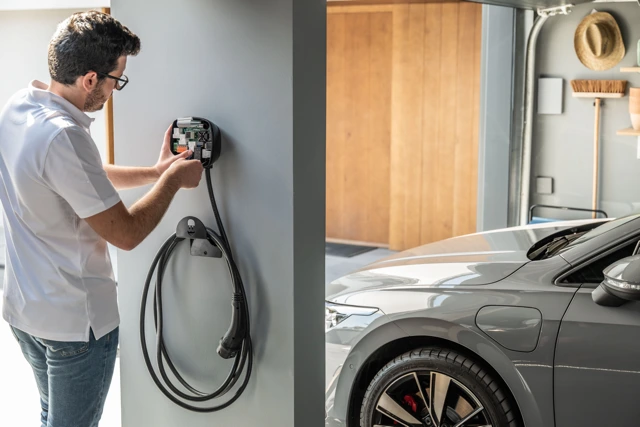Electric vehicles are rapidly gaining popularity as a sustainable and eco-friendly mode of transportation. As more people make the switch to EVs, the demand for EV chargers is also on the rise. To avoid additional replacement and installation costs, time wasted troubleshooting and damage to your EV, it is crucial to keep your EV charger in optimal condition. In this blog post, we will provide you with essential maintenance and troubleshooting tips to ensure your EV charger remains reliable and efficient.
Maintenance Tips
- Regular Cleaning: Just like any other electrical device, EV chargers can accumulate dirt and dust. Ensure to clean the charger’s connectors and the surrounding area regularly. Use a soft, dry cloth or a mild cleaning solution to remove any grime or debris.
- Check for Physical Damage: Inspect the charging cable and connectors for signs of wear, fraying, or damage. If you notice any issues, contact a professional technician for repairs or replacement.
- Secure Electrical Connections: Periodically check that all electrical connections are tight and secure. Loose connections can lead to reduced charging efficiency and potential safety hazards. If you encounter these hazards, you should seek the assistance of an electrician to take care of them.
- Verify Cable Integrity: Examine the charging cable for cuts or exposed wires. Damaged cables should be replaced immediately to prevent electrical hazards.
- Monitor Charging Speed: Keep an eye on your EV’s charging speed. If you notice a significant decrease in charging speed, it may indicate an issue with the charger or electrical supply. Contact a qualified electrician for a thorough inspection.
Troubleshooting Tips
- Charger Not Powering On: If your charger doesn’t power on, check the power source. Ensure it is properly plugged in and that the circuit breaker or fuse is not tripped. If the issue persists, consult an electrician.
- Slow Charging: Slow charging can be caused by various factors, including low voltage or a faulty charger. Make sure your electrical supply meets the charger’s requirements. If the problem persists, consider upgrading your charger or consulting a technician.
- Error Messages on the Charger: Modern EV chargers often display error codes or messages. Refer to the charger’s manual or manufacturer’s website to decode these messages. They can provide valuable information about the issue. If you can’t find the solution, please contact your EV charger supplier or manufacturer.
- Overheating Charger: If your charger becomes excessively hot during use, stop charging immediately and unplug it. Overheating can damage the charger and pose a safety risk. Allow it to cool down before attempting to use it again.
- Intermittent Charging: If your charger frequently stops and starts charging, it could be due to loose connectors or a faulty cable. Ensure all connections are secure and consider replacing the cable if needed.
Conclusion
By following these maintenance and troubleshooting tips, you can ensure your EV charger remains reliable and safe for use. Regular inspections and proactive maintenance can extend the lifespan of your charger and contribute to a hassle-free EV ownership experience. Remember that safety should always be a top priority, and if you’re unsure about any aspect of maintenance or troubleshooting, consult a qualified professional for assistance.

